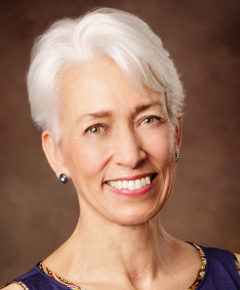
Nina Jablonski
Evan Pugh University Professor of Anthropology, The Pennsylvania State University
Charles M. and Martha Hitchcock Lectures
March 1, 2017 — 4:10 PMInternational House, Chevron Auditorium — 2299 Piedmont Avenue, UC Berkeley Campus
About the Lecture Skin is the primary interface between ourselves and our environment, and changes in the structure and function of human skin have tracked major events in our evolution. These lectures will explore the nature and sequence of changes … Continued
International House, Chevron Auditorium - 2299 Piedmont Avenue, UC Berkeley Campus Berkeley Graduate Lectures [email protected] false MM/DD/YYYYAbout the Lecture
Skin is the primary interface between ourselves and our environment, and changes in the structure and function of human skin have tracked major events in our evolution. These lectures will explore the nature and sequence of changes in human skin through prehistory, and the consequences of these changes for the lives of people today.
About Nina Jablonski
Nina Jablonski’s current research comprises basic, clinical, and educational projects, including a study of the lifestyle and genetic factors that affect vitamin D status in healthy young adults in South Africa, the writing of a graphic novel about skin color for South African middle school children, and the development of a science summer camp curriculum for minority and underserved middle school students in the U.S. Her research is funded by grants from the National Science Foundation, The Robert Wood Johnson Foundation, and The Rockefeller Foundation. She is the author of Living Color: The Biological and Social Meaning of Skin Color (2012), and Skin: A Natural History (2006), both from the University of California Press.
Dr. Jablonski, earned her Doctorate in Anthropology from the University of Washington in 1981 and her undergraduate degree from Bryn Mawr College in Biology 1975. She is the Evan Pugh University Professor of Anthropology at the Pennsylvania State University also serving as Director of the Center for Human Evolution and Diversity; and as Associate Director of The Huck Institutes of the Life Sciences (both also at the Pennsylvania State University); and as a Permanent Visiting Fellow at the Stellenbosch Institute for Advanced Study (STIAS), Stellenbosch, South Africa.